As a startup founder, your work never ends. Whether you’re connecting with suppliers, brainstorming product features, developing a marketing campaign, or running numbers for investors, it’s a constant juggling act.
If you have a team to take up some of the slack, it can reduce your stress and allow you to focus on the things only you can do. Building the right team takes time and dedication, and if a few employees leave, it can put you in a bad position overnight.
Though it’s often pushed to the side for more pressing issues, developing a strong employee retention strategy is one of the best steps you can take to ensure your startup thrives.
Why Startups Struggle with Hiring and Retention
Finding and attracting talent to any business can be challenging, but it’s often more so for startups. There are a unique set of challenges that can affect the hiring process for a startup, such as:
Limited Brand Recognition and Credibility
Starting a business from scratch means you have to build brand recognition over time. This can create challenges with attracting job candidates, as they may be hesitant to get on board with a relatively unknown company without knowing if it’s real — or if they’ll get paid at all. You need a strong team to grow, but it can be hard to attract people to a business that hasn’t yet established itself. You’re also competing against established businesses with proven track records, making it even harder.
Minimal Resources
Hiring is a big drain on your time and resources. You have to post job listings, screen potential candidates, conduct rounds of interviews, send job offers, and onboard new candidates. Balancing these tasks with your daily workload to keep the business afloat can be daunting. Recruiters can help, but the fees only add to your financial burden when you’re already working with a startup budget.
Rapidly Changing Business Needs
Startups are dynamic — sometimes chaotic — environments that require adaptable, flexible employees that are willing to wear many hats and take on job responsibilities outside of those they were hired to perform. Not everyone can perform in such an environment, so you need to find the right fit.
Benefits of Employee Retention
Startups are under pressure to build a foundation and grow, which is served best by a loyal, dedicated, and invested team. However, as you manage the day-to-day and long-term business initiatives, you could leave your team to their own devices.
There’s something to be said for a team that can work independently, but you can’t forget to nurture them. Your business can’t scale effectively if your team feels disconnected from the mission and unsure of how their work directly translates to success. You may see high turnover, draining your resources, costing you time, and harming your reputation as an employer brand.
High turnover also harms your current employees and, ultimately, your bottom line. It creates a sense of uncertainty if employees see everyone else leaving for different opportunities or constant new job listings. You’re also losing a lot of money if you have to hire and train new employees on a regular basis.
That’s why it’s essential to invest in your team and create an environment that makes employees want to stick around and see the business through to its success.
Effective Tips to Build Strong Teams
Running a business in highly competitive markets can make it more difficult to find and retain talent — especially if you’re up against established players with bigger budgets. Here are some strategies to improve your employee retention and build loyal teams:
Reconsider Your Hiring Processes
Employee retention starts with hiring the right people in the first place. How effective are your hiring practices? Attracting quality candidates and having a pool of candidates to choose from sets you up for success, ensuring you find people who are a good fit in both qualifications and personality.
Create detailed job descriptions that provide a clear picture of the role and its responsibilities, but don’t get too caught up in the requirements. Tech proficiency can be taught, but you can’t make a risk-averse candidate a good fit for the fast-paced and uncertain startup climate, or an individualistic worker a good fit for a team that steps in as needed. Focus as much on the soft skills you want to make a strong team.
Put Together a Competitive Hiring Package
Candidates are vetting potential employers as much as the employers are vetting them. Remember that you’re probably not the only company putting in a job offer, so you need to be competitive in your salary and benefits to attract quality candidates.
Fortunately, you have an advantage. As a startup founder, you can offer perks that may not be available at a big corporation, such as stock options, remote work, generous paid time off, or flexible work arrangements that can be appealing to candidates.
Prioritize Positive Company Culture
Starting a business gives you a chance to build the culture you want from the start. Prioritize a positive, inclusive, and empowered company culture that helps every employee feel valued. You should also allow this culture to develop on its own with your guidance.
Employees leave jobs for a lot of reasons, including salary, advancement opportunities, and company culture. Salary and perks don’t go as far if the workplace is toxic and damaging. You can create a culture that supports employees and gives them a sense of purpose and belonging with an emphasis on teamwork and communication.
Build and Maintain a Great Team
Your team can be your secret to startup success or another hurdle to overcome, depending on how you hire and nurture your employees. When you understand the importance of employee retention and implement effective management techniques, you can build a dedicated and invested team that wants to stick around and contribute to the success of your business in the long term.
Author:
Michael Bollinger, a Lexington, Kentucky-based entrepreneur,is the founder of LegFi and File990. He launched PayHOA.com in 2018 after Togetherwork acquired his first two ventures.








